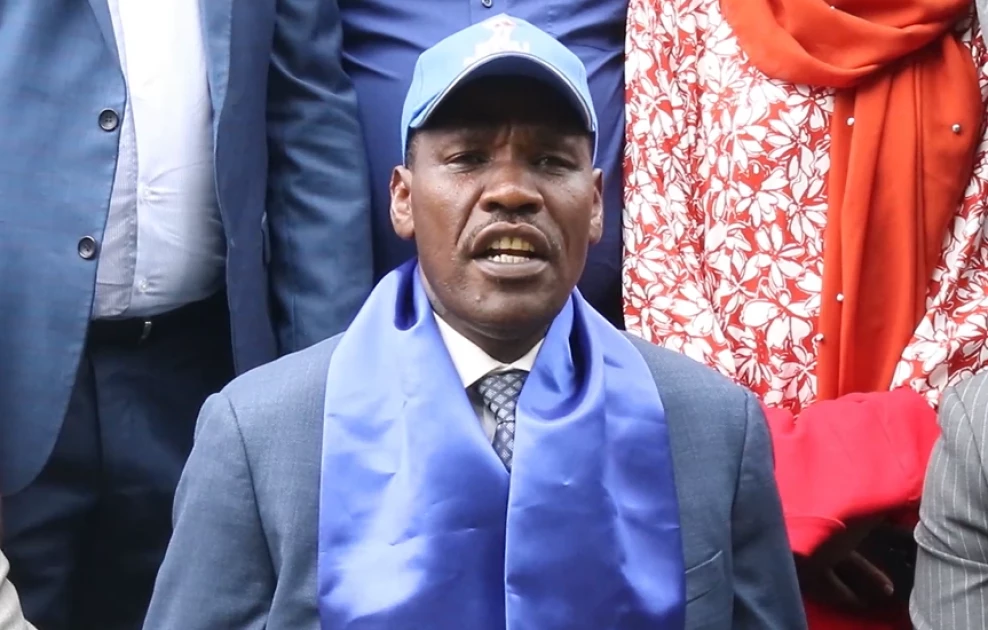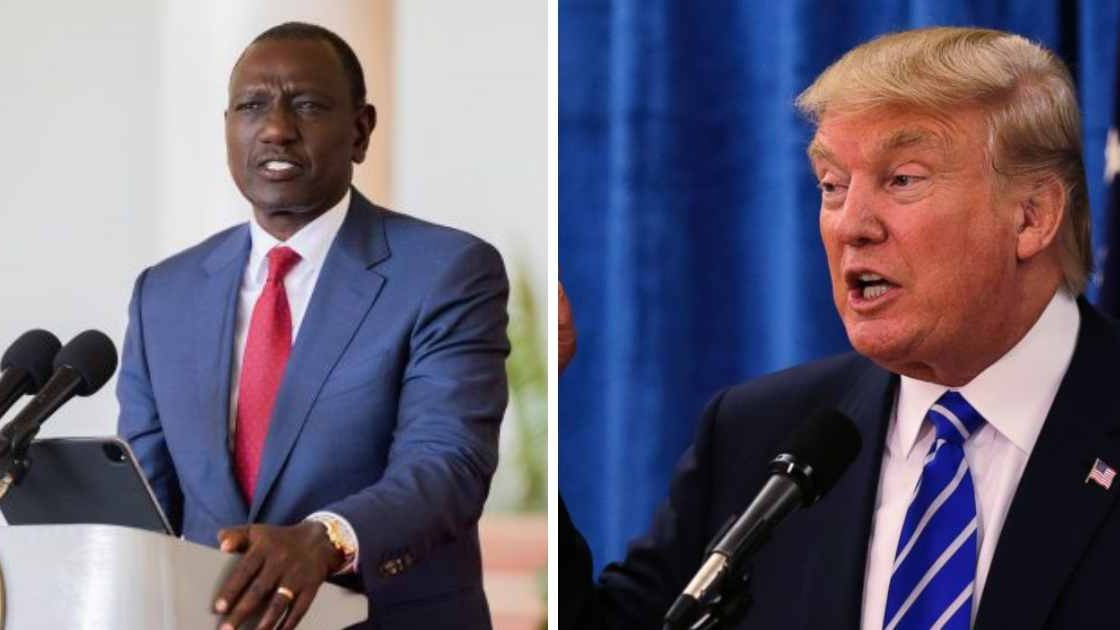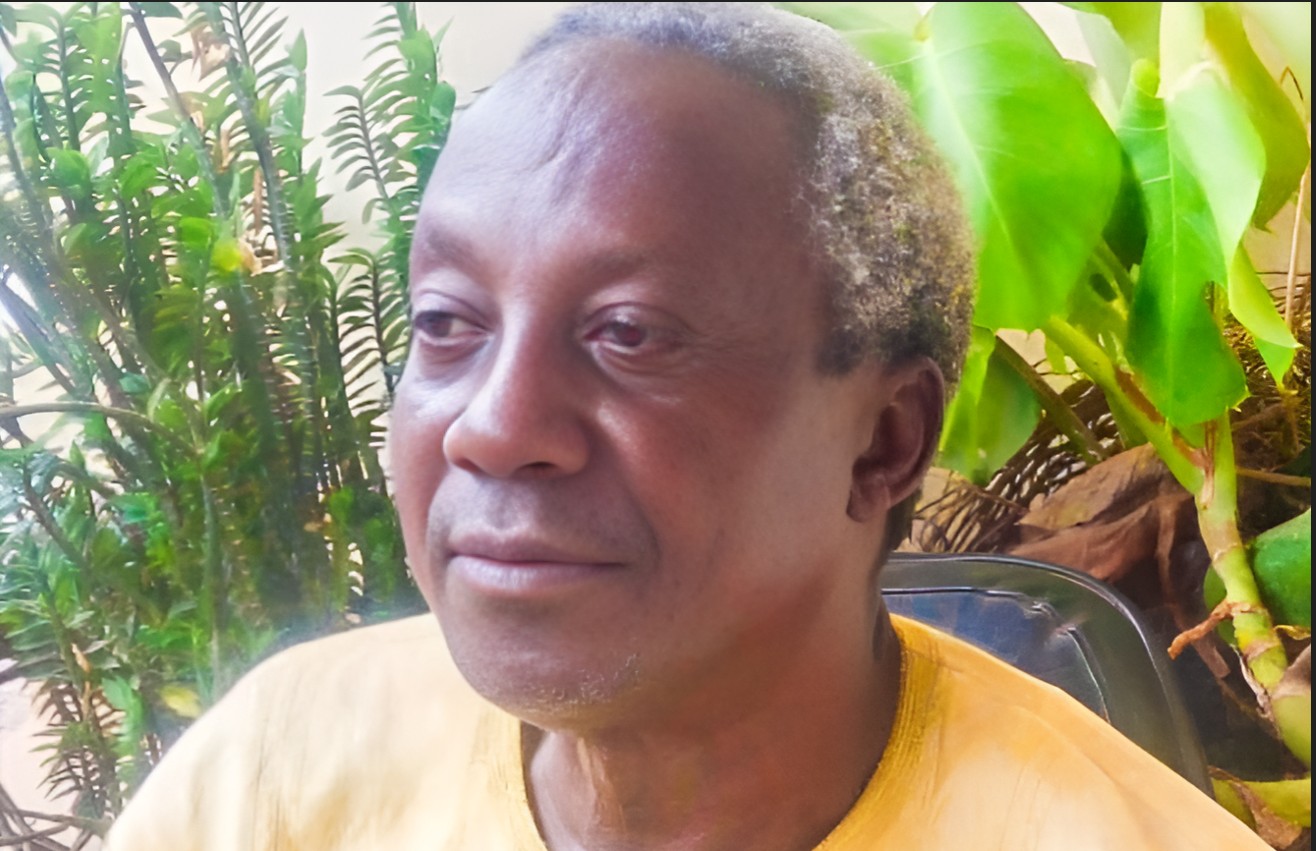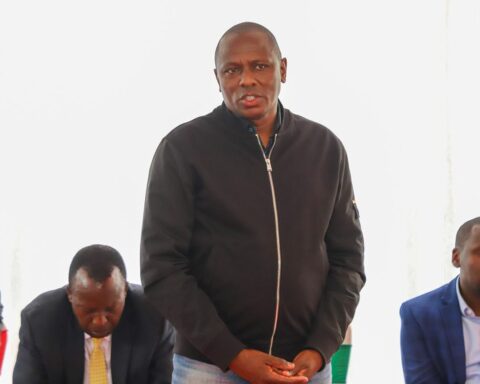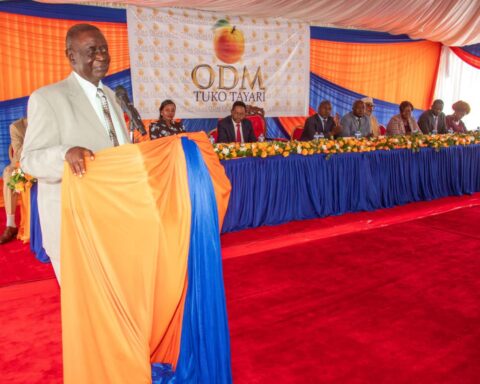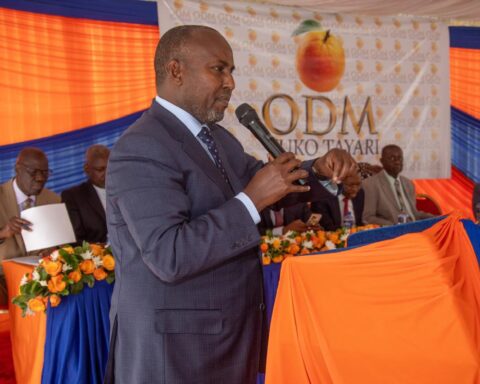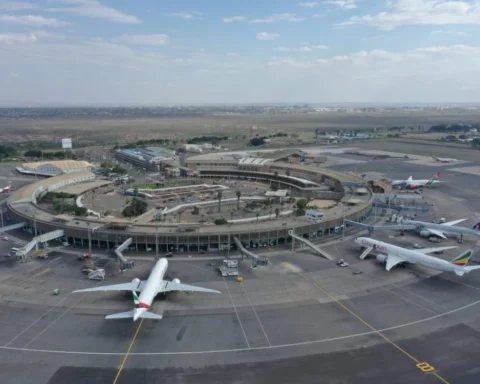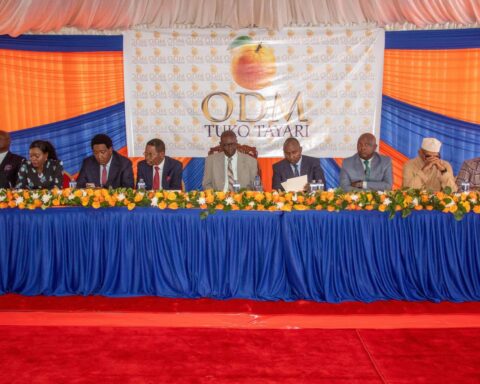The battle for political supremacy in the Mt. Kenya region intensified yesterday as Party of National Unity (PNU) leader Peter Munya sharply criticized former Deputy President Rigathi Gachagua for attempting to impose his Democratic Congress Party (DCP) as the sole political vehicle for the region.
Speaking at the opening of a new PNU office in Kariene market, Meru County, Munya accused Gachagua of undermining multiparty democracy and harking back to the dark days of single-party rule under former President Daniel arap Moi.
“Usituambie mlima chama ndio hii,” Munya declared to a charged crowd, directly challenging Gachagua’s narrative that DCP is the only legitimate party for Mt. Kenya. “Kwani wewe ndio nani? Eti sijui mlima, sijui nini. Kuna wengine walikua kabla yako na wengine watakuja. Hata Munya ataondoka na wengine watakuja,” he added, emphasizing that no single leader or party can claim a monopoly over the region’s political loyalty. Munya’s remarks, laced with defiance, underscored the growing tensions in the vote-rich region as the 2027 General Election looms.
Gachagua, who launched DCP in May 2025 after his impeachment from the deputy presidency, has been aggressively marketing it as the ultimate defender of Mt. Kenya’s interests. His rhetoric, often centered on “shareholding” politics and regional unity, has drawn sharp criticism for dismissing other parties like PNU, Jubilee, and The Service Party (TSP) as “small wheelbarrows” aligned with President William Ruto’s United Democratic Alliance (UDA). This narrative, critics argue, is not only misleading but also a dangerous attempt to suppress political diversity in a region known for its vibrant democratic culture.
Munya, a former Agriculture Cabinet Secretary and Meru Governor, warned that Gachagua’s push for a single-party dominance risks dragging Kenya back to an era of political monopolization that many fought to dismantle. “Some people say that even in Mt. Kenya, there should be only one party; no,” Munya asserted, calling for a multiparty approach that respects the region’s diversity. “Every Kenyan has the right to join the party he or she wants. If you have your party, sell your manifesto and let the citizens decide. You cannot force loyalty, especially not in a region as politically awake as Mt. Kenya.”
The backlash against Gachagua’s approach is gaining traction. Former Nyeri Town MP Ngunjiri Wambugu, now aligned with Jubilee, has accused Gachagua of trying to impose an “unwelcome dictatorship” by dictating who gets elected in the region. “Gachagua is obsessed with becoming a Raila Odinga in Mt. Kenya, dictating who gets elected and who doesn’t,” Wambugu told Nation recently, adding that such tactics are retrogressive and dangerous. Similarly, TSP leader Mwangi Kiunjuri has warned voters against leaders who prioritize personal ambition over performance, signaling resistance to DCP’s dominance.
Political analysts view Gachagua’s strategy as a high-stakes gamble that could backfire. “Mt. Kenya has never embraced dictatorship,” said Prof. Macharia Munene, a political analyst. “Gachagua’s confrontational style and insistence on zoning the region under one party alienates other leaders and risks isolating Mt. Kenya from national coalitions.” Munene noted that the region’s fragmentation, with parties like Jubilee, PNU, and others vying for influence, reflects a healthy democratic contest that Gachagua’s approach threatens to undermine.
Jubilee, led by former President Uhuru Kenyatta, is also reasserting itself as a formidable force in the region, with plans to field candidates in 2027, potentially backing former Interior CS Fred Matiang’i. This move further complicates Gachagua’s grand plan to “ring-fence” Mt. Kenya under DCP. Analysts argue that his rhetoric, which paints non-DCP supporters as Ruto loyalists, oversimplifies the region’s complex political landscape and alienates voters who value choice.
Gachagua’s critics also point to his past political conduct as evidence of his divisive tendencies. As Ruto’s running mate in 2022, he was known for his abrasive attacks on Uhuru Kenyatta, only to later apologize when it suited his political pivot. “Gachagua lies with a straight face,” Wambugu remarked, accusing him of opportunism. Such criticisms highlight the skepticism surrounding Gachagua’s claim to be a unifying figure for Mt. Kenya.
As the 2027 election draws closer, the Mt. Kenya region, once a cohesive voting bloc, is splintering into a battleground of competing parties and ideologies. Munya’s call for democratic competition resonates with those who see Gachagua’s one-party push as a step backward. “If you aren’t with him, you are with Kasongo,” Wambugu said, referencing Gachagua’s binary framing of political allegiance. “This we must resist.”
In a region that has produced three of Kenya’s presidents, the fight for political relevance is far from over. Gachagua’s DCP may have momentum, but with PNU, Jubilee, and others refusing to yield, the former deputy president’s dream of regional dominance faces stiff resistance. For now, Munya’s bold stand serves as a reminder that Mt. Kenya’s political soul remains fiercely independent—and no single party can claim it without a fight.
